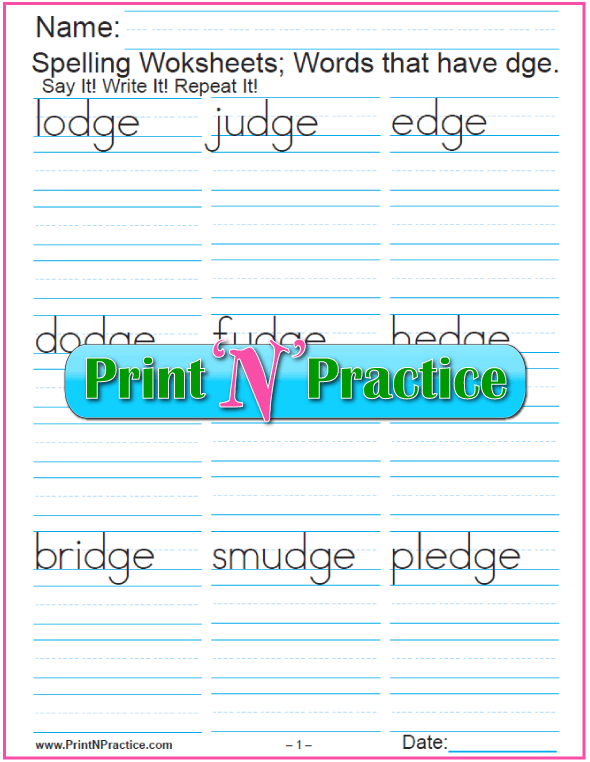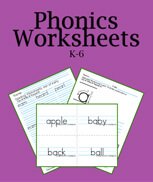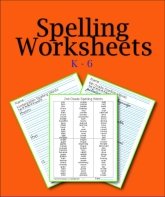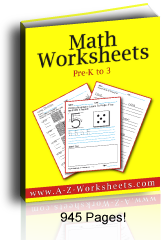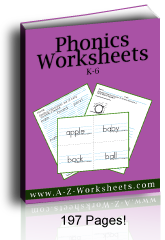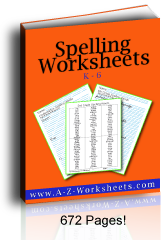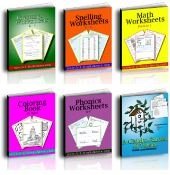- Home
- Phonics Worksheets and Videos
- Phonics DGE Words
DGE Words Phonics Worksheet
Trigraph DGE words use the /j/ pronunciation after a short vowel in a short root word.
DGE is a trigraph because it uses three letters to make one sound. It is not properly called an ending in the suffix sense of the term, it simply fulfills the rule that when you say /j/ behind a short vowel sound, you use the three letter DGE.
In reverse, when you read a single vowel followed by DGE, you know to say the short vowel sound. If only GE follows pronounce the long vowel sound or the French sound of the vowel as with the word garage.
Digraph CK and trigraph TCH use the same spelling rule:
Rule: Use DGE after a single short vowel, that says "a-e-i-o-u".
You can use these worksheets with your own phonics books to review the sounds and the rules.
Print the K123 2-up for high school and to have smaller lines like handwriting worksheets. Less work for the kids and can improve their penmanship.
See hints and examples in the sections below:
Buy All 190+ Phonics Worksheets And Phonics Flashcards In One Bundle
Be encouraged to stay in touch! Join my free newsletter....
Join To Receive My Free PrintNPractice Newsletters!
Free Online Worksheets For School, Homework, And Homeschool Practice
Free Online Teacher Resources - Free Homeschool Curriculum
For teachers and parents: PrintNPractice free printable worksheets are all copyright-free, digital activities for students. Use them in homeschool, interactive notebooks for online classrooms, Google classroom, distance learning, tutoring and learning pods, and hybrid school.
- No prep.
- No tracking.
- Self learning.
- Copyright free.
- Lifetime license.
- Diverse learners.
- Easy drill-and-kill.
- Interactive worksheets.
- Printable morning work.
- Paperless morning work.
- Go printable or paperless.
- Stay on track. Summer review.
- Easy elementary school curriculum.
- Remote learning packets or homework.
- Most need no answer key or key is included.
- Videos for audio and visual learners. God bless headphones!
See free teacher and homeschool digital interactive school-at-home learning exercises with no login, no tracking, no sign-up, no voucher, no account, and no credit card. Loads of digital activities for device-based learning.
1. Learning The DGE Phonics Rule
DGE follows the VCC pattern or vowel-consonant-consonant where the second consonant protects the previous vowel from saying its long sound. A one syllable word that uses a short vowel with the /j/ sound is spelled with the trigraph DGE.
What about the E? The silent E lets the G say /j/.
Why does it matter? Because we do not end an English word with a J.
When adding a vowel suffix, drop the silent E unless you need it to preserve the soft G sound.
There are several exceptions to the E dropping rule. The word judgment can be spelled with or without the extra E, yet in the United States it is usually spelled without the E, yet retains the soft G sound. For example:
judge, judged, judging, judgment
DGE Phonics Words
-adge Words
badge
-edge Words
edge
dredge
hedge
pledge
sledge
-idge Words
bridge
fridge
smidge
-odge Words
dodge
hodge podge
lodge
-udge Words
budge
drudge
fudge
judge
smudge
When your kids are learning DGE words have them practice this list orally with you so they can see the pattern.
- K123 Large Font DGE Worksheets - K-2, print 2-up for high school.
- Third Grade Small Font DGE Worksheets - Grades 3-6+.
Print both or choose the size that works for your children. You'll like having the different sizes to teach phonics to several ages of children.
Buy All 190+ Phonics Worksheets And Phonics Flashcards In One Bundle
2. Teaching DGE Words PDF
Parents and teachers love this ESL phonics worksheet because it helps children pronounce the short sounds of the five vowels. If they say it as they practice writing the sound at the same time, they'll learn it so much better.
Silent letters: D is almost silent and the E is a totally silent letter with these words unlike badger and gadget.
Since children are usually older when they are learning to write DGE words, they can also learn to form derivatives by adding prefixes and suffixes or endings.
As you're teaching the phonogram DGE, dictate these words for your children to write into their notebooks. The worksheet is an excellent homework lesson or phonics exercise. Next, I include some simple sentences so you can teach the vocabulary of each word you dictate.
3. List of DGE Words With Sentences
- badge – The sheriff's badge is a gold star.
- edge – The cat will edge closer to the ball of yarn.
- dredge – The crane will dredge the ditch.
- hedge – A hedge is a row of bushes.
- pledge – Pledge to help at home.
- sledge – Dad bought a sledge hammer.
- bridge – The bridge crosses the river.
- fridge – The milk is in the fridge.
- smidge – Put a smidge of salt in the rice.
- dodge – Duck to dodge the tree limb!
- hodge podge – I have a hodge podge of odd books.
- lodge – The beaver built a stick lodge.
- budge – This rock is solid and will not budge.
- fudge – I like chocolate fudge candy.
- judge – Judge the facts for yourself.
- smudge – Finger prints smudge the glass.
4. DGE Words, Derivatives, And Dropping Silent E
Since there is a silent final E, the rule is to drop the E when you add an ending that begins with a vowel that preserves the soft sound of G.
When you add endings to these words you change the meaning, sense, or tense. They can be nouns, so you can add an s to make the noun plural. They can also be used as verbs, so adding s makes the word a third person singular verb in the present tense.
If you add an r the word becomes one who does the action, for example: A dredger dredges dirt from the canal.
If you add an ending that begins with e, i, or y you can drop the silent final e; otherwise keep it. Drop the e before adding –ing. Adding –ing makes the word a verb in the continuous tense. The action is continuing.
These are some commonly used –dge words:
- badge, badges
- edge, edges, edged, edger, edging
- dredge, dredges, dredged, dredger, dredging
- hedge, hedges, hedging
- pledge, pledges, pledged, pledging
- sledge, sledges
- bridge, bridges, bridging
- fridge, fridges
- smidge, smidges
- dodge, dodges, dodged, dodger, dodging
- lodge, lodges, lodged, lodger, lodging
- budge, budges, budged, budging
- fudge, fudges, fudged, fudging
- judge, judges, judged, judging
- smudge, smudges, smudged, smudging
Interactive Phonics Worksheets
Print these PDF phonics activities or store them in a file for your child's phonics lessons and exercises. Whether they are reading the lists, writing the words, or typing the words, they'll have excellent phonics practice.
Learn how PrintNPractice PDFs are printable interactive worksheets here.
How To Teach Phonics With More Free Phonics Worksheets
You'll find more than forty kindergarten, first grade, second grade, and third grade phonics worksheets, phonics books, activities, and videos on our main phonics page.
These worksheets are available in both manuscript and cursive worksheets:
- Spelling Worksheets
- Grammar Worksheets
- A Child's Garden of Verses - Poetry and handwriting printable worksheets.
Thank you for sharing with your favorite teachers, parents, and homeschool families!
~Mary
Buy Our Phonics Worksheets In Bundles: Phonics, Spelling, And Reading
Buy the bundle of our online phonics worksheets in one digital download for ad-free access to phonics practice for your elementary school students at school or at home.
BONUS: It includes our cursive writing worksheets.
Homeschool worksheets for spelling practice and Robert Louis Stevenson's poetry handwriting worksheets make great ESL printable worksheets. Enjoy!
More Phonics Worksheets, Videos, and Books

Mary Fifer, BSBA is webmaster, author, and researcher at PrintNPractice.com. She has created elementary school practice exercises using printable or digital interactive worksheets. Perfect for today's teachers, tutors, homeschoolers, and students!
Thank you for visiting and for sharing. :-)
Be encouraged to stay in touch! Join my free newsletter....
